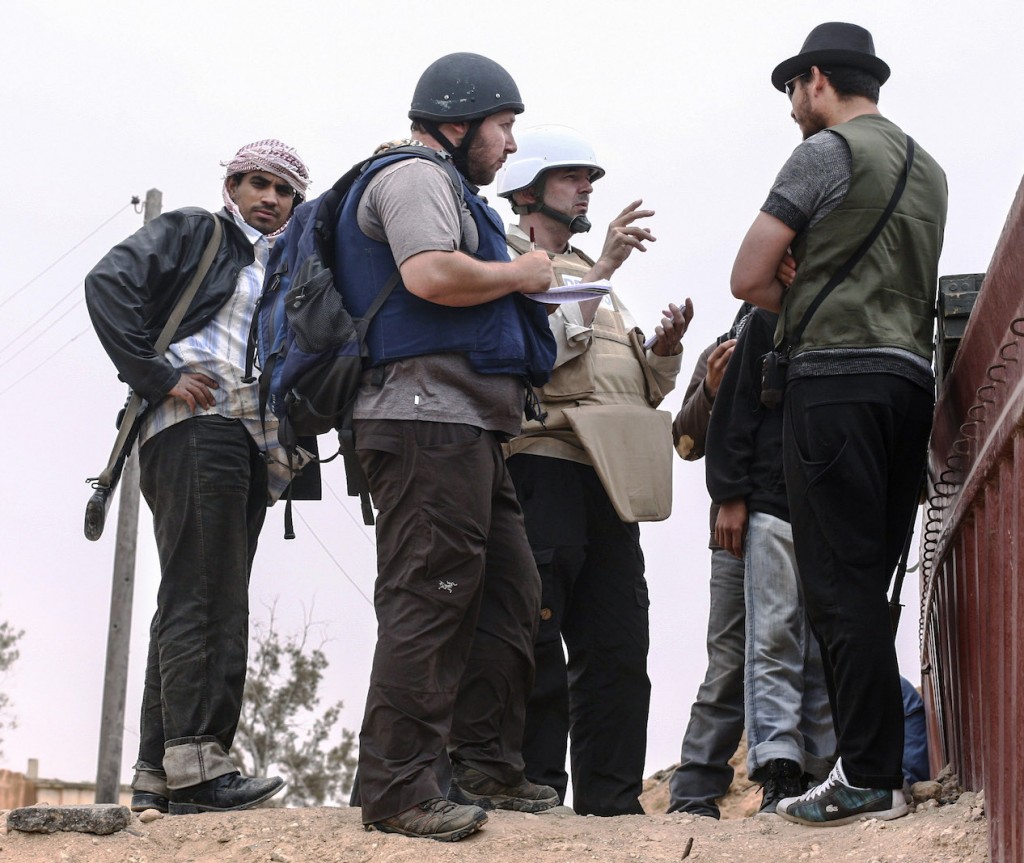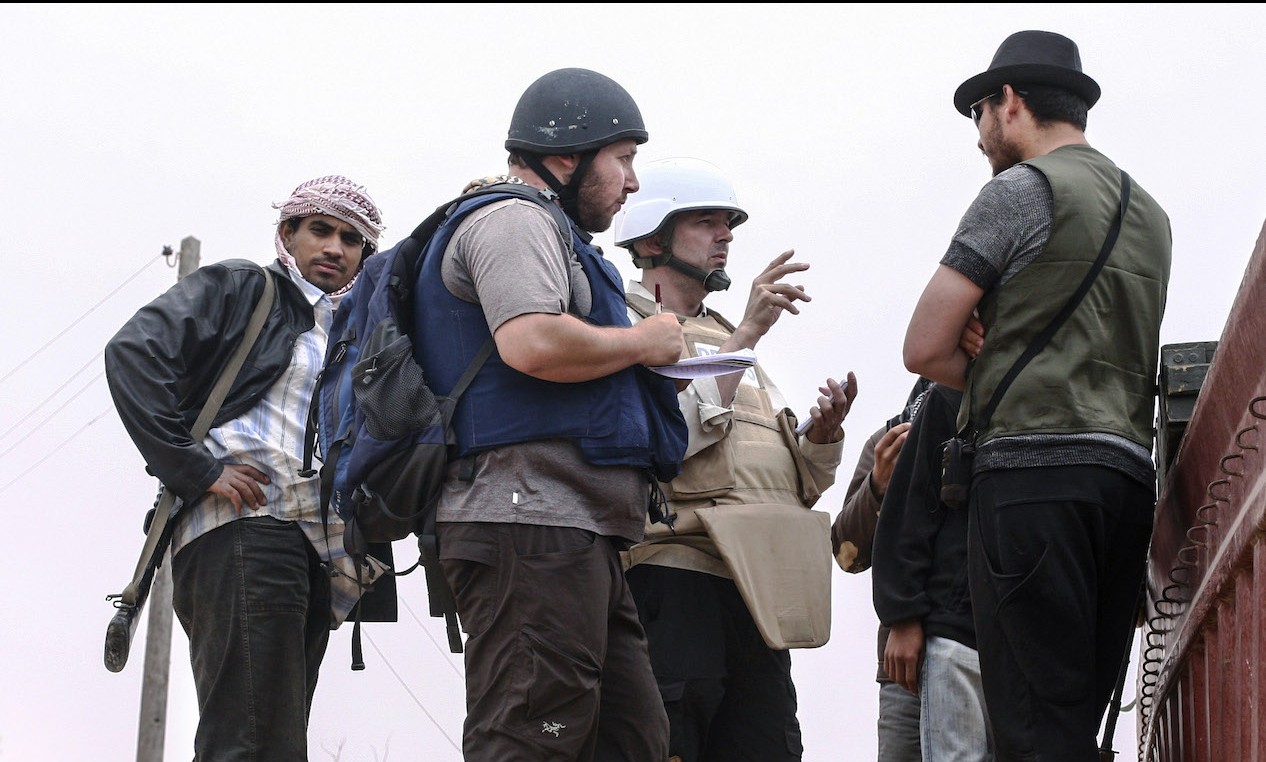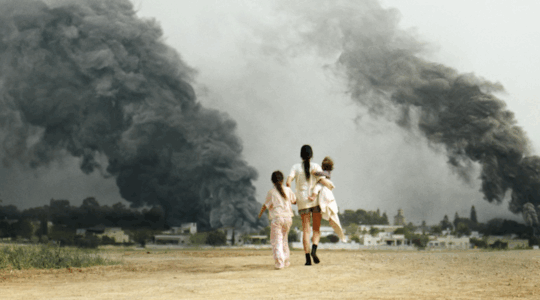
In this handout image made available by the photographer, American journalist Steven Sotloff (center with black helmet) talks to Libyan rebels on the Al Dafniya front line, 25 km west of Misrata, June 2, 2011. (Etienne de Malglaive via Getty Images)
Steven Sotloff, the journalist beheaded Tuesday by the Islamic State, was Jewish and a dual U.S.-Israeli citizen whose detailed and colorful reporting told stories of ordinary people caught in conflicts across the Middle East.
Among articles filed for a range of publications, Sotloff reported stories from the Arab world to the Jerusalem Report. He would often begin articles with personal anecdotes illustrating the tumult and desperation of war. In one story for the Report, he introduced readers to a boy foraging for wood:
Muhammad Sidqi took a break from chopping the thick trees that sheltered Aleppo’s Sahur Park. The blisters on his hand made holding the heavy wooden axe painful. Its dull blade only prolonged the laborious task. Sidqi was one of many foraging for wood around Aleppo on a cold January day. What made him different though was his age – just 12 years old. …
When the winter cold first hit Aleppo, Sidqi scavenged through abandoned schools and factories for wood. But after the residents of the city had pillaged everything – including the wooden paneling from ceiling beams – to heat their frigid homes, Sidqi’s family was forced to find alternative sources of wood.
He filed from across the region to the Jerusalem Report, from the revolution in Egypt to the uprising in Bahrain:
“My soul, our soul, we offer to you,” the crowd of 30,000, divided between veil-clad women and men, chanted as Sheikh Ali Salman, religious leader of the Shi’i opposition movement al-Wefaq, took to the stage to speak. Wedged in an open field between Salman and the giant banner of him that had been draped around an office building across the street, the throngs waved their Bahraini flags wildly.
Though the largest campaign rally of Bahrain’s election season was ignored by most local media outlets, the Shi’a who came out in force did not seem to mind. They want political power and will exploit any opening the regime offers them to attain it.
Ilene Prusher, Sotloff’s editor at the Jerusalem Report, wrote at Haaretz that Sotloff “relied a lot on what we would call man-on-the-street interviews or ‘vox pop,’ which help readers understand what average people are thinking, and he was good at weaving in color and context, both crucial tools in the journalist’s toolbox.”
Sotloff moved on to write for other outlets, including Time magazine, filing several pieces from Libya. In one report, shortly after the attack on the U.S. consulate in Benghazi, Sotloff visited the scene of the attack:
A visitor rings the doorbell to a large gated villa in Benghazi, and a gardener slowly opens the heavy metal door. He welcomes guests with a big smile, offering them tea before giving them a guided tour of the sprawling grounds with its swimming pool and hefty trees, which obscure the view from prying eyes. But the villa is not just another secluded house owned by a wealthy Libyan seeking privacy. It is the most sensitive crime scene in the world.
But while Sotloff traveled throughout the region, he maintained his contact with Israel. Sotloff visited Israel last year for a wedding, according to a story in the Times of Israel on his Israeli connections.
“He had such energy. Depending on how well you knew him, he was either abrasive or he was like a teddy bear,” Hillary Lynne Glaser, who studied alongside Sotloff at the Interdisciplinary Center in Herzliya, told the Times of Israel. “I saw that nice soft side where all he wanted was to explore and find a girlfriend, find someone other than his roommates whom he could complain to about the state of Israel and embrace his travels with.”
JTA has documented Jewish history in real-time for over a century. Keep our journalism strong by joining us in supporting independent, award-winning reporting.






